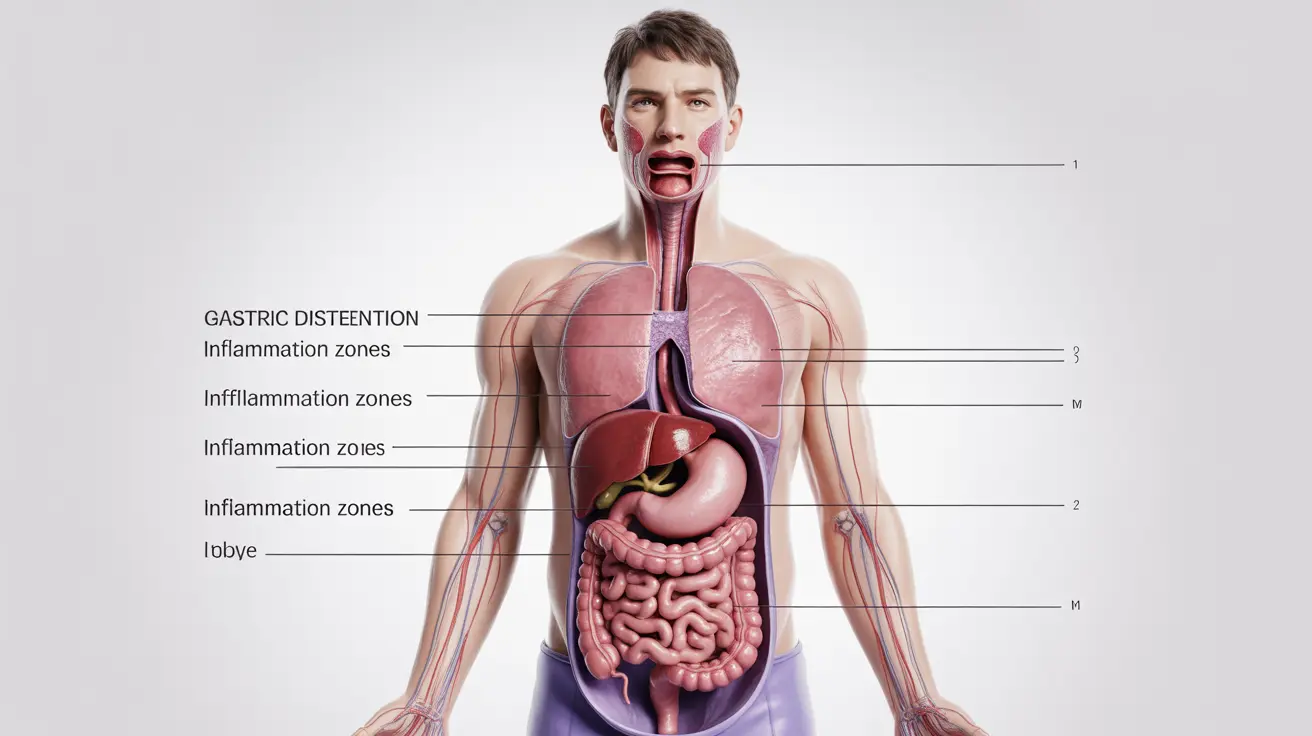Chemo belly is a common side effect experienced by many cancer patients undergoing chemotherapy treatment. This condition, characterized by abdominal bloating, discomfort, and changes in digestive function, can significantly impact a patient's quality of life during and after treatment. Understanding its causes, symptoms, and management strategies is crucial for both patients and their caregivers.
In this comprehensive guide, we'll explore what causes chemo belly, its typical symptoms, duration, and effective ways to manage this challenging side effect of cancer treatment.
Understanding Chemo Belly and Its Causes
Chemotherapy medications target rapidly dividing cells, including cancer cells and healthy cells in the digestive system. This interaction can lead to various gastrointestinal issues that contribute to chemo belly:
- Inflammation of the digestive tract
- Changes in gut bacteria balance
- Slowed digestive motility
- Fluid retention
- Changes in metabolism
These factors can work individually or together to create the uncomfortable symptoms associated with chemo belly.
Recognizing the Signs and Symptoms
Chemo belly manifests through several distinct symptoms that patients should be aware of:
- Visible abdominal distention
- Uncomfortable bloating sensation
- Excessive gas
- Changes in appetite
- Constipation or diarrhea
- General abdominal discomfort
The severity and combination of symptoms can vary significantly from person to person, and may fluctuate throughout the treatment course.
Duration and Recovery Timeline
The duration of chemo belly can vary depending on several factors, including the type and length of chemotherapy treatment, individual response, and overall health status. While some patients may experience relief shortly after completing treatment, others might notice symptoms persisting for several months.
Typical Recovery Phases
Recovery from chemo belly typically progresses through several stages:
- Acute phase (during treatment)
- Early recovery (1-3 months post-treatment)
- Extended recovery (3-6 months or longer)
Managing Chemo Belly Symptoms
Several strategies can help alleviate the discomfort of chemo belly:
Dietary Modifications
- Eating smaller, frequent meals
- Choosing easily digestible foods
- Staying well-hydrated
- Limiting gas-producing foods
- Including fiber-rich foods gradually
Lifestyle Adjustments
Making certain lifestyle changes can significantly impact symptom management:
- Gentle physical activity like walking
- Light yoga or stretching exercises
- Stress reduction techniques
- Regular sleep schedule
- Wearing comfortable, loose-fitting clothing
When to Seek Medical Attention
While some level of abdominal discomfort is expected during chemotherapy, certain symptoms warrant immediate medical attention:
- Severe or persistent abdominal pain
- Inability to eat or drink
- Extreme bloating or distention
- Signs of dehydration
- Fever or chills
- Unusual changes in bowel movements
Frequently Asked Questions
What causes chemo belly and why does chemotherapy lead to bloating and gas? Chemo belly occurs when chemotherapy affects the digestive system's healthy cells, leading to inflammation, altered gut bacteria, and changes in digestive motility. These changes can cause fluid retention, gas accumulation, and bloating.
What are the common symptoms and how does chemo belly affect the abdomen's appearance? Common symptoms include visible abdominal distention, bloating, gas, and digestive changes. The abdomen may appear swollen or enlarged, and patients might experience fluctuating levels of discomfort throughout their treatment.
How long does chemo belly typically last after chemotherapy ends? The duration varies by individual, but symptoms can last anywhere from a few weeks to several months after treatment completion. Some patients experience improvement within 1-3 months, while others may need longer to recover fully.
What dietary and lifestyle changes can help manage or reduce chemo belly symptoms? Eating smaller, frequent meals, staying hydrated, choosing easily digestible foods, and maintaining gentle physical activity can help manage symptoms. Stress reduction techniques and wearing comfortable clothing can also provide relief.
When should I see a doctor if my chemo belly symptoms become severe or persist? Seek immediate medical attention if you experience severe abdominal pain, extreme bloating, inability to eat or drink, fever, or unusual changes in bowel movements. These symptoms could indicate complications requiring prompt medical intervention.




